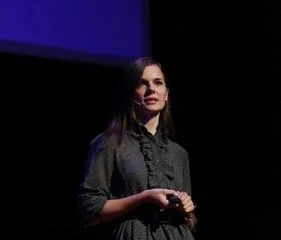“The motivation behind the feminist book club is the initiative I started within my research group (LSTS VUB), a reading group called "Gender, Law and Technology". I started this initiative because I realised my need to gain more academic knowledge about the implications of digital technologies on feminist issues. And of course, the university, as an academic environment is the best place to interact with other researchers from different disciplines. We have access to books, to literature and I wanted to create this time and space to interact with other people so that we can interchange our views and ideas on some topics. Apart from fostering interdisciplinary collaboration- that I really love- my goal is to raise awareness on feminist issues in academia. If you think about it, the university is a thumbnail of the society. So somehow gender stereotypes might be replicated in the university.
I’ve chosen these three books because they are newly released. For instance, the “Feminist Cyber Law” will be published in June. All of them are quite fresh, let’s say. They provide a fresh view of what is happening right now in the digital field, but from a feminist perspective.”
- Anastasia Karagianni
“I am no longer accepting the things I cannot change. I am changing the things I cannot accept.”
- Angela Davis
The books:
When Rape Goes Viral: Youth and Sexual Assault in the Digital Age by Anna Gjika
-
Stories of teen sexting scandals, cyberbullying, and image-based sexual abuse have become commonplace fixtures of the digital age, with many adults struggling to identify ways to monitor young people's digital engagement. In When Rape Goes Viral, Anna Gjika argues that rather than focusing on surveillance, we should examine such incidents for what they tell us about youth peer cultures and the gender norms and sexual ethics governing their interactions. Drawing from interviews with teens and high-profile cases of mediated juvenile sexual assault, Gjika exposes the deeply unequal and heteronormative power dynamics informing teens' intimate relationships and online practices, and she critically interrogates the role of digital cultures and broader social values in sanctioning abuse. The book also explores the consequences of social media and digital evidence for young victim-survivors and perpetrators of sexual assault, detailing the paradoxical capacities of technology for social and legal responses to gender-based violence.
-
-
Discussants: Elisabetta Biasin, Karolina Iwanska
Feminist Cyberlaw by Amanda Levendowski
-
This vibrant and visionary reimagining of the field of cyberlaw through a feminist lens brings together emerging and established scholars and practitioners to explore how gender, race, sexuality, disability, class, and the intersections of these identities affect cyberspace and the laws that govern it. It promises to build a movement of scholars whose work charts a near future where cyberlaw is informed by feminism.
-
A free ebook version of this title is available through Luminos, University of California Press's Open Access publishing program. Visit www.luminosoa.org to learn more.
-
Discussants: Anastasia Nefeli Vidaki, Plixavra Vogiatzoglou, Alexandros Goniadis
Feminist AI by Kerry McInerney
-
Feminist AI showcases the vital contributions of feminist scholarship to thinking about AI, data, and intelligent machines as well as laying the groundwork for future feminist scholarship on AI. It brings together scholars from a variety of disciplinary backgrounds, from computer science, software engineering, and medical sciences to political theory, anthropology, and literature. It provides an entry point for scholars of AI, science and technology into the diversity of feminist approaches to AI, and creates a rich dialogue between scholars and practitioners of AI to examine the powerful congruences and generative tensions between different feminist approaches to new and emerging technologies. It features original and essential works specially selected to span multiple generations of practitioners and scholars.
-
-
Discussants: Luca Stevenson, Andriana Efthymiadou, Mireia Orra De Salsas
Get in contact for the next edition







